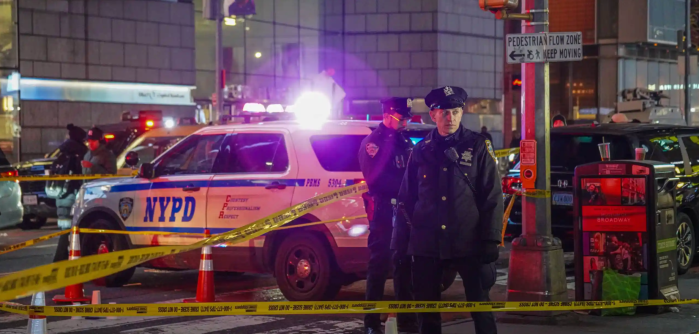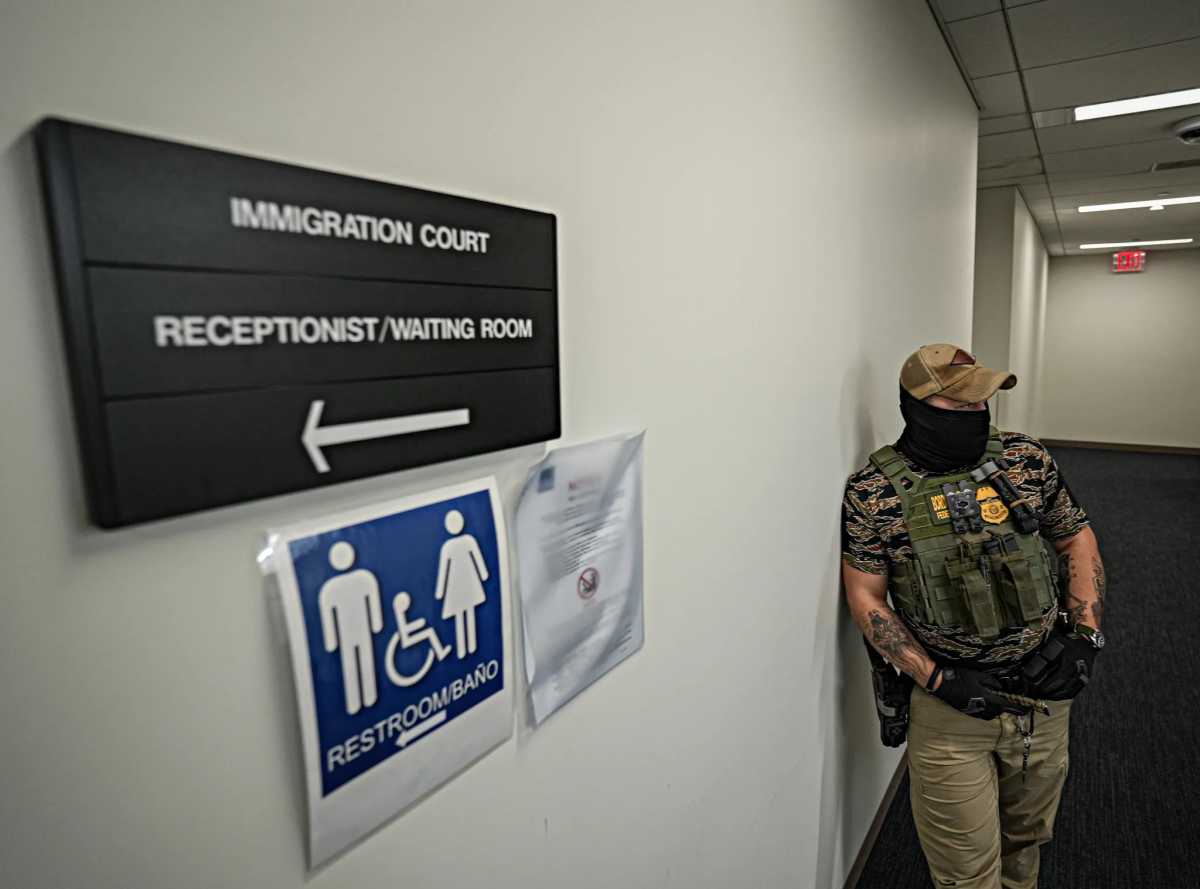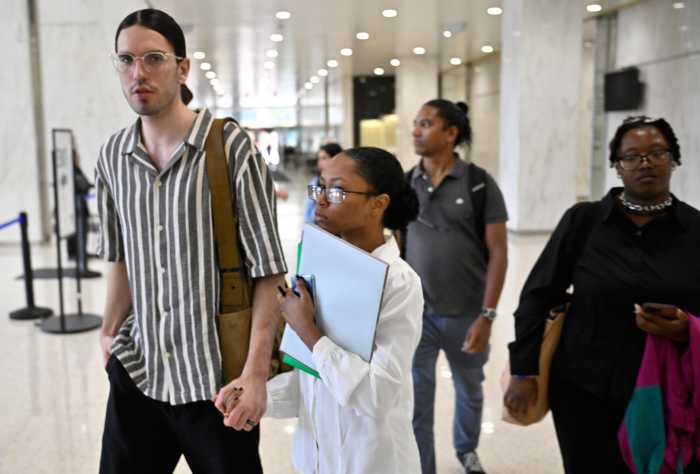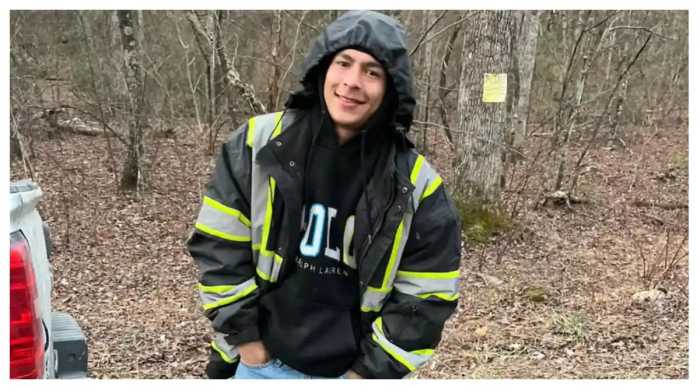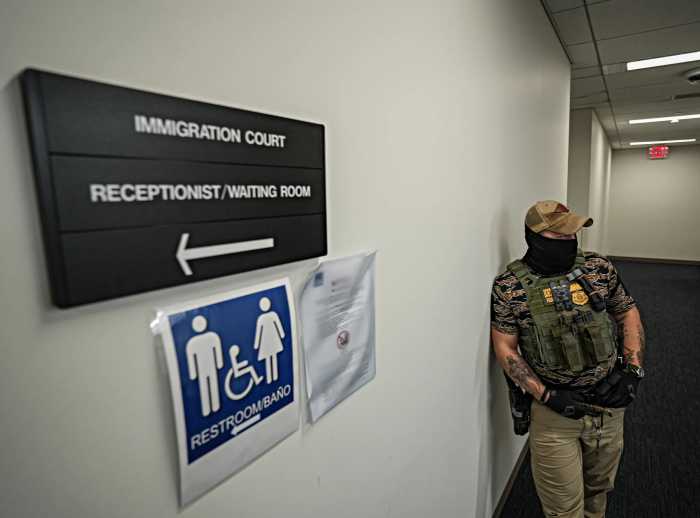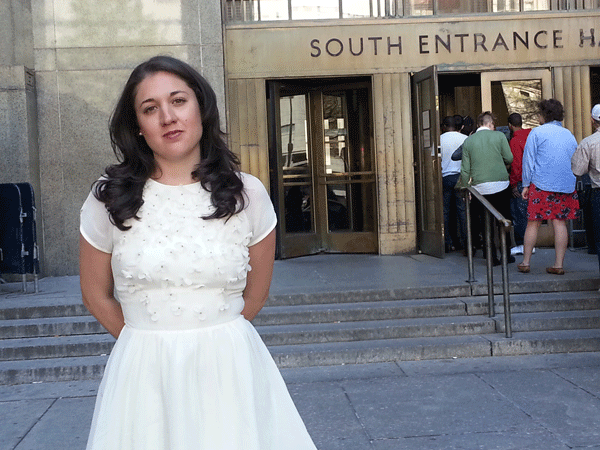
BY BETSY KIM | In an Occupy Wall Street case that has received heavy coverage, a Manhattan jury on Monday convicted Cecily McMillan, a 25-year-old New School graduate student, of felony assault of a police officer.
On St. Patrick’s Day 2012, at the six-month anniversary of the Occupy Wall Street protests, police cleared activists from Zuccotti Park. McMillan’s defense is that while she was exiting, Officer Grantley Bovell grabbed her breast from behind, and she reacted by jerking her elbow into his face, not realizing he was a cop.
On Monday, Judge Ronald Zweibel remanded McMillan to custody at Riker’s Island without bail, pending sentencing on May 19. She could be sentenced to up to seven years in prison, but also could get probation with a suspended sentence and no jail time. Her attorney, Martin Stolar, is filing a bail application. Stolar will request that, if granted, McMillan’s release on bail continue while her appeal is processed.
After three hours, the jury returned its verdict. Some McMillan supporters cried out in grief and shed tears. Several repeatedly chanted, “Shame!” A man angrily shouted, “Bulls—!” several times. McMillan’s supporters and reporters had filled the courtroom to its maximum capacity. About 30 court officers hastily cleared the courtroom and hallways.
Near the courthouse steps, protesters erected a 10-foot-tall puppet — a defaced, blind figure of Justice with an upside-down pink hand on its breast.
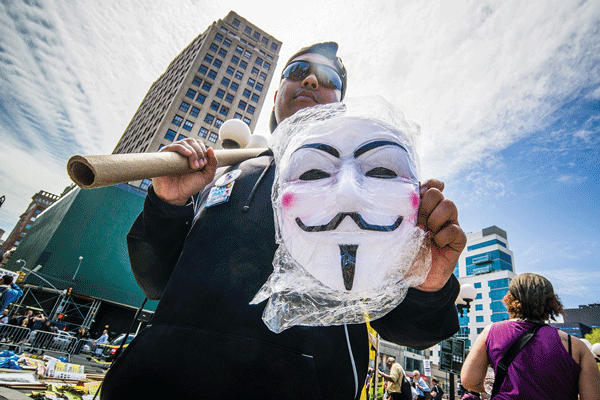
Lucy Parks, read a statement written by McMillan and her supporters.
“We are devastated by the jury’s verdict today,” it said, in part. “It has been clear from day one that Cecily has not received a fair and open trial. The job of a judge during a jury trial isn’t to guide the verdict to fit his opinion. Judge Zweibel, who consistently suppressed evidence, has demonstrated his clear bias by consistently siding with the prosecution. …”
Midway through the trial, the judge issued a gag order on talking to the press. Stolar noted one basis for an appeal will be the exclusion of the information of two witnesses. They claim Bovell, on the night of McMillan’s arrest, intentionally banged the head of a handcuffed protester — one of the two witnesses — on the steps of a bus, according to Stolar. The other witness claims to have observed this. The judge ruled such evidence inadmissible as mere allegations. But the attorney asserts the information could have shed light on the officer’s conduct that night.
McMillan remembered getting jerked up and back by someone grabbing her right breast from behind, then her head slammed into the ground. Stolar says police used excessive force in arresting McMillan, and that she suffered memory loss, seizure-like conditions and post-traumatic stress disorder.
Bovell testified that while escorting McMillan from the park, she said, “Are you filming this? Are you filming this?” and that McMillan then crouched down, and jumped up, throwing her elbow into his eye.
The officer said McMillan then ran off, and, in trying to stop her, he fell on top of her, while she had her hand above her breast. Assistant District Attorney Erin Choi accused McMillan of wanting to be “the face of the O.W.S. movement,” purposefully striking Bovell, exaggerating injuries, faking seizures and lying.
During deliberations, the jury requested to view the video and medical records again.
The prosecution introduced into evidence a short, dark and grainy video clip that showed McMillan swinging her elbow into Bovell and running a few steps before police descend upon her. The clip did not show what happened before she elbowed Bovell. Choi also introduced McMillan’s medical records, showing no concussion, no broken bones and a doctor’s diagnosis that McMillan’s conditions were most likely caused by hyperventilating and anxiety.
The defense introduced into evidence photos of McMillan’s bruised and scraped body. A picture shows a hand-shaped bruise above her right breast. Stolar called the photo, “the smoking gun in the case.”
O.W.S. protesters charge police used excessive force to discourage voices of dissent on issues like advocating for income equality and decreasing corporate political power. Choi repeatedly tried to separate the elements of the charges — striking an officer, intending to interfere with his official duties — from any larger social movement.
“This is a very simple assault case,” Choi said in closing arguments. “This is not about rich or poor or anything related to Occupy Wall Street. Our founding fathers did not create a right to free assembly so people could commit crimes and hide behind their right to protest. This is a sacred right that should be preserved and protected.”
David Graeber, an anthropology professor at the London School of Economics, is often called an Occupy Wall Street founder. He is credited with coining the movement’s slogan, “We are the 99%.” He disagreed with Choi, saying the McMillan case sent a chilling message: “You do not have the right to freedom of assembly. Do not show up at a protest unless you are willing to face the possibility of torture, physical injury and years in jail.”
The evening of the verdict, demonstrators gathered in Zuccotti Park to show support for McMillan. The Justice4Cecily support team sent out invitations for a Friday night potluck, so that people could socialize, discuss future actions and raise bail money.
A Justice4Cecily core team member, Stan Williams, reflected on the heavily watched case.
“Cecily went through the system, this meat grinder, like thousands of people do every day,” he said. “She went through this process and was spit out. The difference was that she had a support team and the media there, covering her case every day. I hope this helped shed a light on what happens in the criminal justice system.”



